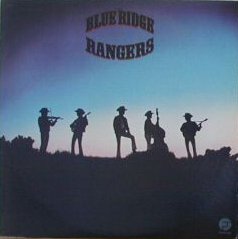This article needs additional citations for verification .(May 2009) |
| The Blue Ridge Rangers | ||||
|---|---|---|---|---|
 | ||||
| Studio album by | ||||
| Released | April 1973 | |||
| Genre | ||||
| Length | 36:15 | |||
| Label | Fantasy | |||
| Producer | John Fogerty | |||
| The Blue Ridge Rangers chronology | ||||
| ||||
| Alternative cover | ||||
 Reissue LP cover | ||||
| Alternative cover | ||||
 CD reissue cover | ||||
| Review scores | |
|---|---|
| Source | Rating |
| Allmusic | |
| Christgau's Record Guide | B+ [3] |
| Rolling Stone | |
The Blue Ridge Rangers is the debut solo studio album by the American guitarist John Fogerty,the former lead singer and lead guitarist of Creedence Clearwater Revival.
Contents
Upon its initial release by Fantasy Records in 1973,the album was credited to "The Blue Ridge Rangers" with no mention of Fogerty on the cover. Fogerty chose to do this in order to distance himself from his Creedence legacy. The LP was later reissued and credited to John Fogerty with a different cover design. The CD reissue restores the original silhouette cover photo and credits the album to Fogerty. The album is made up entirely of traditional and country covers,and features Fogerty playing all the instruments.
The album peaked at #47 on the charts. Two singles from the album became hits:"Jambalaya" which peaked at #16 in the USA and #15 in Canada,and "Hearts of Stone" which peaked at #37 in the USA and #35 in Canada. A third non-album single "You Don't Owe Me" reached #79 in Canada. [5]
In 2009,Fogerty released a sequel to this album,entitled The Blue Ridge Rangers Rides Again .